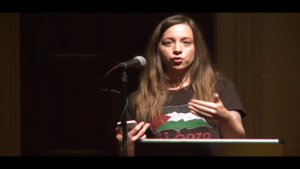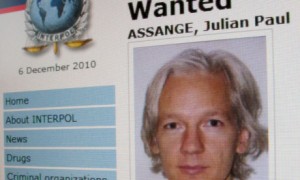Podcast: Play in new window | Download
Library Freedom, TOR And Right To Privacy
Libraries in this country have long been sanctuaries in which to read, think, dream and pursue intellectual pursuits free from judgment or outside intrusion. But historically outside forces HAVE tried to intrude on this sanctitude. During the Cold War, for example, librarians exposed the FBI’s efforts to recruit library staff to spy on certain patrons, especially Russians, through the so-called Library Awareness Program. And after the attacks of September 11, 2001, the USA Patriot Act’s Section 215 has often been dubbed the “library provision” because it allows patron’s library records to be accessed and monitored by law enforcement agencies without a warrant.
In 2015 Law & Disorder reported on a New Hampshire Library that installed the Tor relay node to allow patrons to privately browse computers. Tor is anonymizing software that lets users conduct online searches without being monitored. Soon after, the Department of Homeland Security contacted local officials who visited the library, warning that Tor could aid criminal behavior.
Alison asks to please visit your local library website and facebook pages to increase their usage metrics which in turn help when applying for funding.
Guest – Alison Macrina was one of the people responsible for the New Hampshire library’s privacy tools. Alison is a librarian, privacy rights activist, and the founder and director of the Library Freedom Project, an initiative that helps educate librarians and their local communities about surveillance threats, privacy rights and law, and privacy-protecting technology tools to help safeguard digital freedoms.
—-
Julian Assange Extradition Update
Wikileaks founder Julian Assange’s extradition hearing began in January but is on hiatus at least until September 2020. At the January appearance, the prosecution pleaded for the media to stop characterizing the US effort as a politicized war on journalism. In response, Julian’s defense provided a comprehensive summary of the many reasons that journalists and human rights activists have called Julian’s indictment a threat to a free press.
James Lewis argued for the Crown Prosecution Service, which acts on behalf of the United States in its extradition request. Lewis explicitly asked journalists covering the case not to report that it represents a matter of free speech or the right to publish. Lewis depicted the indictment as solely a matter of exposing informants in the Iraq and Afghanistan war logs and the State Department cables.
Julian’s defense lawyer Edward Fitzgerald detailed how extradition proceedings constitute an abuse of process. He asserted that they have been brought for ulterior political purposes, as an attack on freedom of speech, and fundamentally misrepresent the facts in order to extradite Julian to the US, where he faces torture, unusual and degrading treatment.
Guest – NYC attorney Nathan Fuller, Executive Director of the Courage Foundation.
—————————————
—————————————




